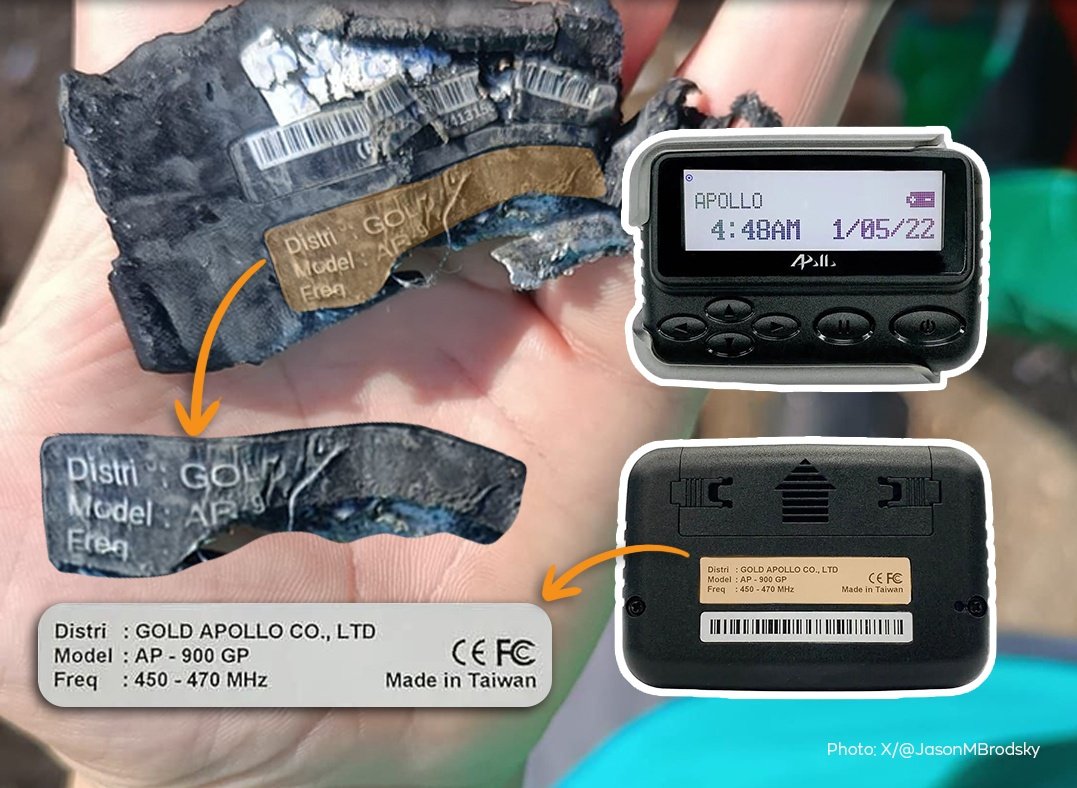News
Exploding Pagers Kill 12 & Injure Thousands In Lebanon & Syria
Several news agencies are now reporting that Israel’s Mossad was responsible for planting the devices used in the attack.

Thousands of Lebanese and Syrian citizens have been injured in an attack that used modified pagers loaded with explosives. Lebanon’s health minister, Firass Abiad, confirmed that twelve people, including a young child, had been killed. Meanwhile, the state media agency, NNA, announced that a further 2,800 people were injured.
By yesterday evening (Tuesday, September 17), the New York Times had reported that Israel was to blame for the attacks, stating: “Israel carried out its operation against Hezbollah on Tuesday by hiding explosive material within a new batch of Taiwanese-made pagers imported into Lebanon, according to American and other officials briefed on the operation”.
Israel's Mossad spy agency planted explosives inside 5,000 pagers imported by Lebanese group Hezbollah months before Tuesday's detonations, a senior Lebanese security source and another source told @Reuters https://t.co/8m4tTa4BSQ pic.twitter.com/O78WXLWUHp
— Reuters (@Reuters) September 18, 2024
Reuters also reported that it had gained information from a “senior Lebanese security source” and “another source” that Hezbollah had imported 5,000 pagers from Taiwanese manufacturer Gold Apollo. However, at some point in the supply chain, the units were intercepted and replaced with modified versions carrying explosives. The source also claimed that Israel’s Mossad spy agency was responsible, adding around three grams of high-explosive material inside the casing of each device.
The Importance Of Pagers To Hezbollah
As we have seen in both the Ukraine war and in places such as Afghanistan, smartphone communications can be deadly, as they’re relatively easy to intercept and give away the exact location of the person operating them.

For that reason, groups waging asymmetric warfare prefer to use low-tech communication methods such as hand-delivered letters or, in this case, old-school devices like pagers.
Reuters sources said 3,000 pagers exploded after 15:00 local time after being triggered by receiving a coded message. According to the New York Times, the message “appeared as though it was coming from Hezbollah’s leadership”.
Also Read: The Top 10 Worst Cyberattacks In The Middle East Revealed
Videos of the exploding pagers have already spread like wildfire across news networks and social media platforms. One shows a man at a store checkout looking down to view his pager before it explodes, pushing him backwards. Another CCTV video from a market shows a man sustaining injuries after one of the modified devices explodes in his bag.
News
Rabbit Expands Hyperlocal Delivery Service In Saudi Arabia
The e-commerce startup is aiming to tap into the Kingdom’s underdeveloped e-grocery sector with a tech-first, locally rooted strategy.

Rabbit, an Egyptian-born hyperlocal e-commerce startup, is expanding into the Saudi Arabian market, setting its sights on delivering 20 million items across major cities by 2026.
The company, founded in 2021, is already operational in the Kingdom, with its regional headquarters now open in Riyadh and an established network of strategically located fulfillment centers — commonly known as “dark stores” — across the capital.
The timing is strategic: Saudi Arabia’s online grocery transactions currently sit at 1.3%, notably behind the UAE (5.3%) and the United States (4.8%). With the Kingdom’s food and grocery market estimated at $60 billion, even a modest increase in online adoption could create a multi-billion-dollar opportunity.
Rabbit also sees a clear alignment between its business goals and Saudi Arabia’s Vision 2030, which aims to boost retail sector innovation, support small and medium-sized enterprises, attract foreign investment, and develop a robust digital economy.
The company’s e-commerce model is based on speed and efficiency. Delivery of anything from groceries and snacks to cosmetics and household staples is promised in 20 minutes or less, facilitated by a tightly optimized logistics system — a crucial component in a sector where profit margins and delivery expectations are razor-thin.
Despite the challenges, Rabbit has already found its stride in Egypt. In just over three years, the app has been used by 1.4 million customers to deliver more than 40 million items. Revenue has surged, growing more than eightfold in the past two years alone.
Also Read: Top E-Commerce Websites In The Middle East In 2025
CEO and Co-Founder Ahmad Yousry commented: “We are delighted to announce Rabbit’s expansion into the Kingdom. We pride ourselves on being a hyperlocal company, bringing our bleeding-edge tech and experience to transform the grocery shopping experience for Saudi households, and delivering the best products – especially local favorites, in just 20 minutes”.
The company’s growth strategy avoids the pitfalls of over-reliance on aggressive discounting. Instead, Rabbit leans on operational efficiency, customer retention, and smart scaling. The approach is paying off, having already attracted major investment from the likes of Lorax Capital Partners, Global Ventures, Raed Ventures, and Beltone Venture Capital, alongside earlier investors such as Global Founders Capital, Goodwater Capital, and Hub71.























